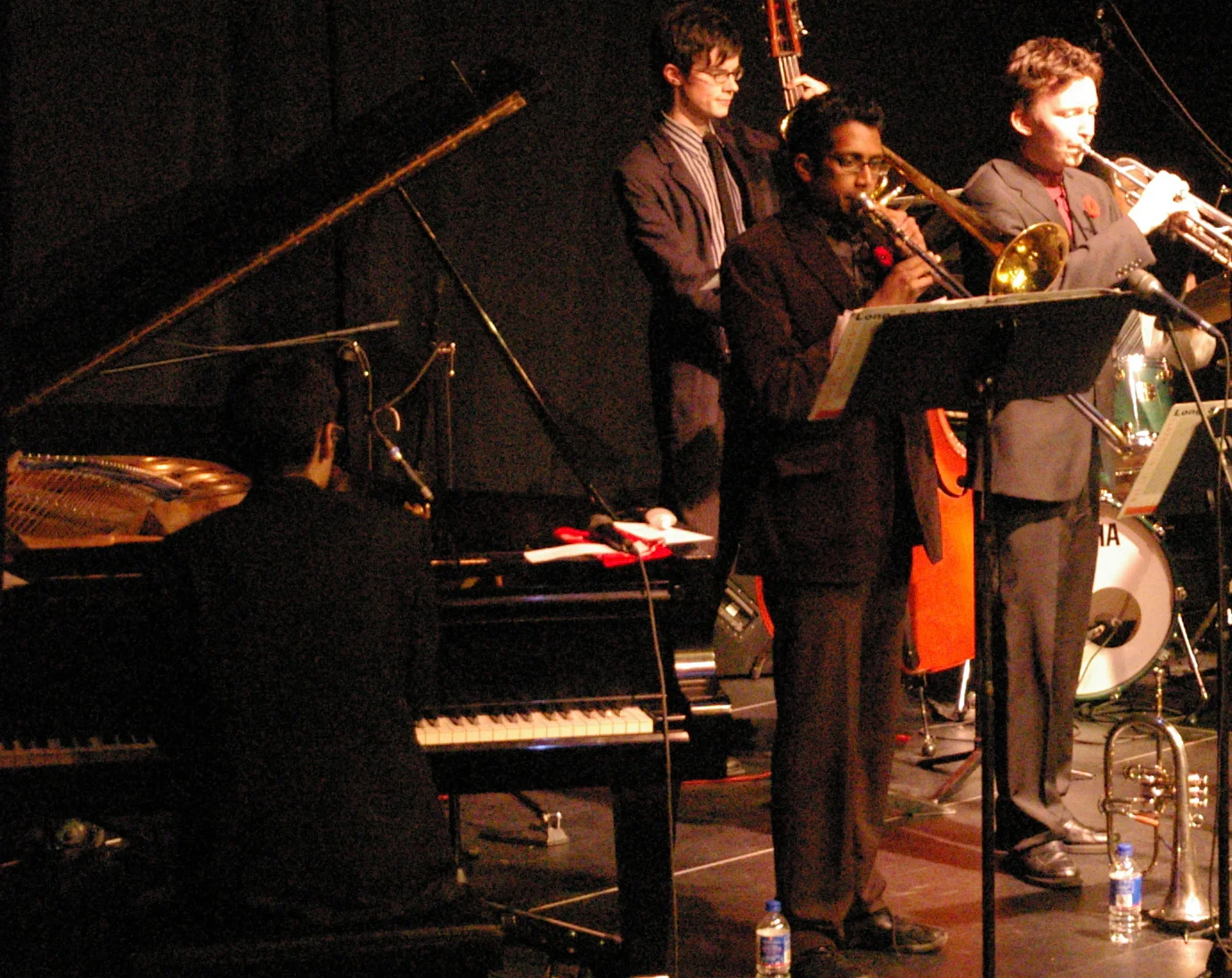Jazz Piano Improvisation And Creativity

Often cited as being the defining feature of jazz piano, improvisation is the practise of creating new, never before heard music, in the moment.
To pianists who have only ever played piano music from sheet music, improvisation may seem magic or mysterious, and it can be difficult to imagine being able to create music on the spot, out of thin air.
In fact, jazz improvisation is generally guided by very concrete rules, techniques, and a vocabulary of melodies, rhythms, and harmonies, that can be systematically learned, applied, and implemented. The “magic” comes later, when you find your own, individual way of putting these elements together to express something new, and personal to you.
These days there are countless jazz piano theory books, encompassing thousands of pages of theory and approaches to improvisation. Our online jazz piano teachers can help by showing you where to start, and simplifying this theory, which overlaps much more than it may seem.
Why is jazz piano theory so important?
For one thing, it allows you to communicate with your teacher and other jazz musicians. Since we are not using a piano score when we play jazz piano, we need a way of talking about different sounds, and theory offers this. It also provides a simple starting point for improvisation. Instead of having an infinite number of piano sounds available for us to choose from, we can use jazz piano theory to say: these 3 notes sound good one after another - let’s start by playing those 3 notes in as many different ways as we can.
When you first begin to improvise, it’s important to start with very simple ideas on the piano. The most important thing is that the music keeps going - there is no stopping, and no going back to fix mistakes. This is a new and different concept for piano students with classical piano training, but once you get used to the main premise of improvisation it will be easy to gradual explore increasingly complex musical ideas.
Improvisation, like learning any piece of written music, takes regular practise. It’s important to sit down at the piano and create spontaneous music every day, to learn to free your inhibitions, and fears of making “a mistake” (remember, there is no such thing). As you improvise, let yourself react to the sounds you’re creating. Don’t judge the sounds - refrain from thoughts such as “I don’t like that,” or “I like this sound” - think more generally. Do the sounds make you feel relaxed or uncomfortable? What emotion or imagery do they evoke? Now try holding a thought, emotion, your favourite person or place, in your mind as you improvise. How closely can you capture these inner feelings in your music?
Though we begin jazz improvisation by learning about theory, ultimately it offers us the potential to form a direct connection from our inner emotions, through our fingers and the piano, to the musical sounds that we create: an instant musical photograph of our soul.





